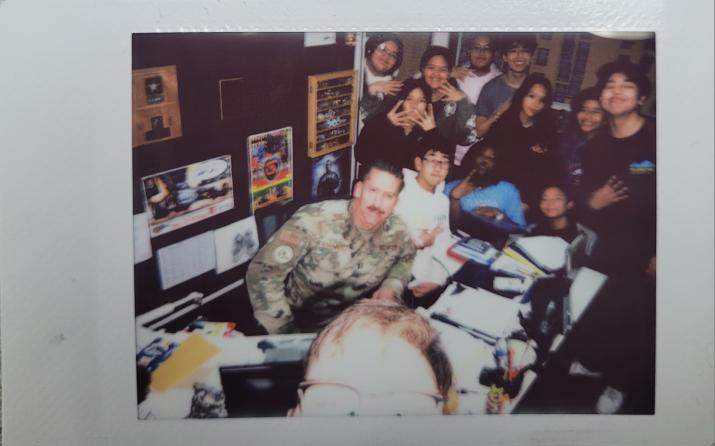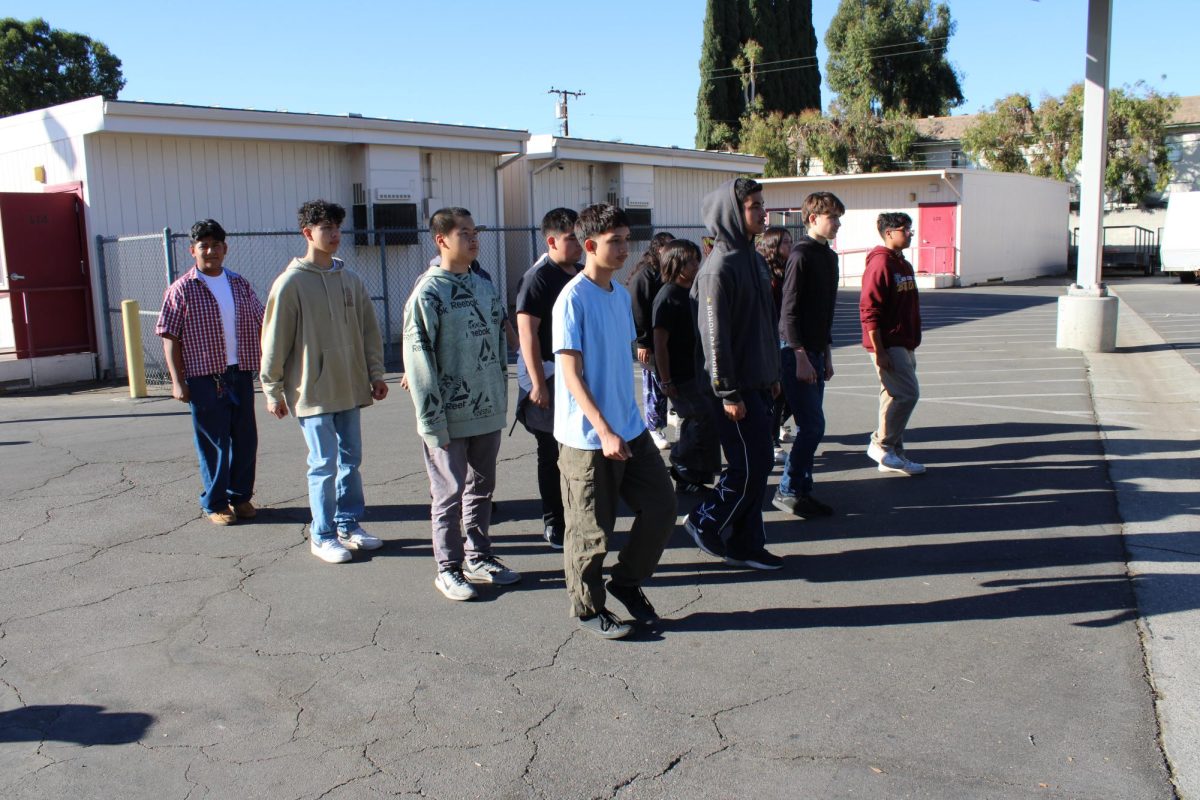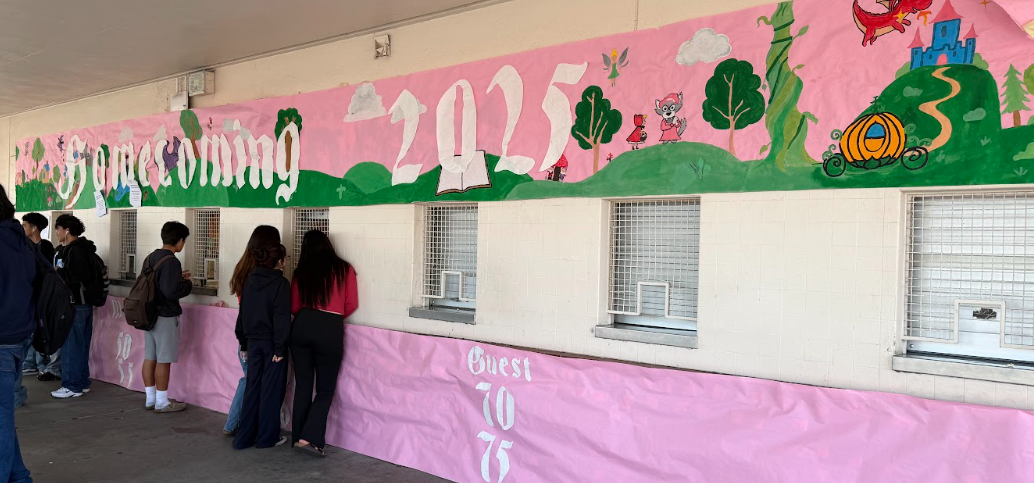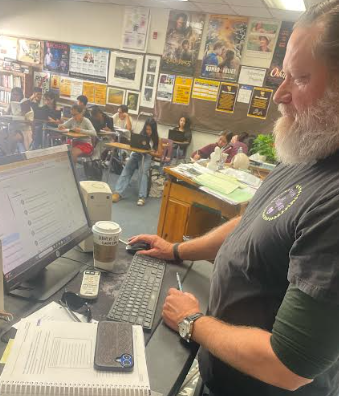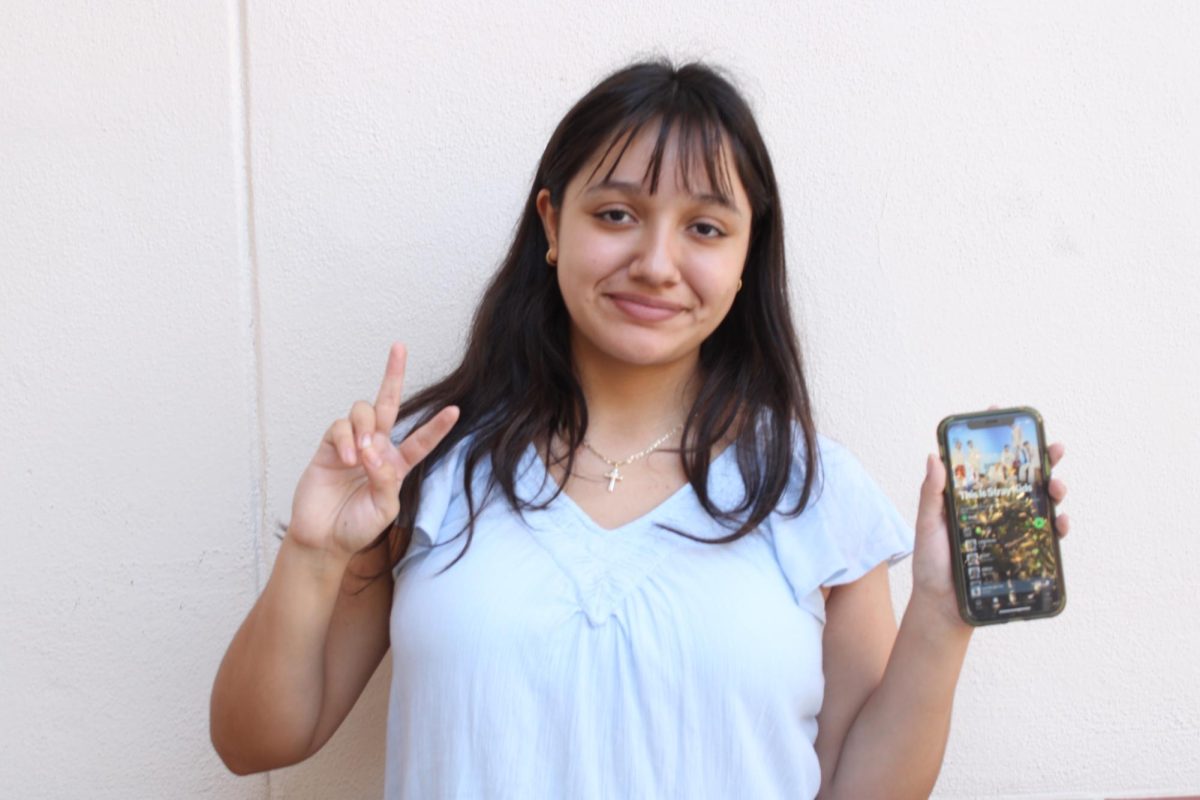With the many leadership classes on campus like Renaissance and Link Crew, there are similar programs like the Air Force Junior Reserve Officers’ Training Corps (AFJROTC) that are often overlooked for their work. AFJROTC, led by Captain Jesus Acuña-Perez, is a program dedicated to helping students build responsibility and teamwork while also teaching them to serve their nation and community. Although many students believe that it’s a class only offered to those interested in joining the military, the program’s main focus is to instill fundamental skills in students without pressuring them to specifically pursue the military.
With over 100 students, or cadets, in AFJROTC, it differs from other programs on campus because it not only teaches leadership skills, but also etiquette and character development, according to Air University, a professional military education university system of the United States Air Force.
“First glance, it’s like a military class, but really it’s more of a life learning class, where you’ll learn things like etiquette, manners, being polite to adults, really just skills that you’re actually going to use in your life,” said Recruiting Officer Arela Acuña, senior.
One of the ways AFJROTC takes on a significant role on campus is by presenting the national colors with their Color Guard, who are cadets that hold the flags at football games, rallies, and city and community events. Along with this, they honor fallen families at Riverside National Cemetery (RNC) as Team 46 every second Tuesday of the month, as well as plan and organize the annual Veteran’s Day assembly to honor veterans who fought for the country.
“It’s very important because certain veterans that don’t really get the recognition, end up having a day where they can come and be celebrated for once,” said Acuña.
AFJROTC Director of Operations Kimora Padilla, a junior, believes the program often gets overlooked due to the lack of support and promotion from the school. An example of this is that they aren’t part of leadership classes that have workshops after school for rallies or other school events.
“I think it’s because we don’t get a lot of promotion out there. Like, when we have events, that’s really the only time we get promoted…I think maybe the school could let us do workshops like how ASB does, let us host events to get promotions, or like even promote us like how they do for ASB or class council, the school doesn’t show us support like that,” said Padilla.
In response, Principal Charles Park expressed that he holds the program in high regard and is open to providing further support to the program.
“I think we need to provide ROTC every avenue to have the publicity, not only for the recruitment of their program, but to show to the student population of all the wonderful things they’re doing. If any ROTC student or cadet feels that there’s areas for improvement, they can always come to me directly or talk to Captain, I’d be more than happy to sit down and go over any ideas,” said Park.
Due to the program being less included in school events the same way other leadership programs are promoted, and lacking support from the school, Acuña-Perez has taken the initiative to be more involved with school events in order to showcase AFJROTC.
“We have an ‘all in’ team concept. So if they need chaperones for the Leadership Summit at University of Redlands, we’re going to be there, if they need, maybe for Bulldog Idol, judges, we’re going to volunteer for that… we want to be integrated, we want everybody to know that ‘Hey, we want to be part of this campus’ just like any other leadership organization,” said Acuña-Perez.
As a result, AFJROTC have felt as if there is a division between the more spotlighted leadership classes and their own program.
“When we hear things like ‘Hey leadership, you know, Renaissance, ASB, etcetera, and we’re not incorporated, or my cadets aren’t mentioned, I think that just further divides us… it hurts, we want to be on par with all the other clubs,” said Acuña-Perez.
Despite going unnoticed, they recognize each other within the program. This has allowed them to build a community where all involved feel a sense of belonging.
“…This is the class where you can go and you can be as weird as you want, and no one’s going to judge you. It’s very homely,” said Acuña.
With this program being a vital part of campus for many years, cadets hope to have more support from the school in the future to fully become the successful program it can be.
“I hope one day that our program could be more recognized and more involved, because again, we’re really not,” said Acuña.


